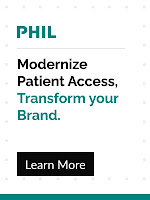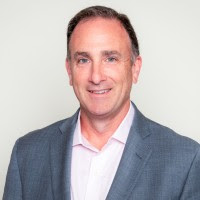Patrick describes how barriers to medication access affect manufacturers and patients. He offers four tactics that can help field teams unlock coverage for patients.
To learn more about Phil’s access and commercialization solutions, download their free whitepaper, Modernize the Patient Access Experience: Transform Your Pharmaceutical Brand. You can also visit https://phil.us/life-sciences/.
Read on for Patrick’s insights.
Four Ways for Field Teams to Tackle Drug Utilization Management and Optimize Patient Access
By Patrick Leary, Chief Commercial Officer, Phil, Inc.
A persistent challenge facing life sciences manufacturers is growing access obstacles, exacerbated by hard-to-enter formularies and rigorous utilization management (UM). Payers are tightening the screws with new cost containment strategies. Where there used to be hoops, they are now on fire, making it more difficult to ensure coverage.
Life science field teams need to command a mastery of what is occurring specific to the payer landscape to communicate effectively with their core audience—health care providers (HCPs). Market realities have required a shift from the traditional model focused on promoting clinical efficacy to one that incorporates support for navigating the web of patient access.
WHY THE TRADITIONAL FIELD MODEL NEEDS TO EVOLVE
The days of assuming access will come easily if an innovative treatment has high demand are gone. Nowhere is this more evident than the lackluster performance of recent drug launches, of which over 60% have underperformed expectations.
The reality is that patients who are prescribed branded therapies face steep access obstacles, including step therapy, prior authorization (PA), and high out-of-pocket costs, all of which inhibit access to therapy. The impact on brands is felt in the form of growing rates of abandonment, uncovered coupon overutilization, and the erosion of loyalty.
Specialized roles beyond promotional sales are necessary to deliver value. Without an integrated team of sales and reimbursement specialists with access to real-time data focused on collaborative problem-solving to reach the UM finish line, performance suffers.
HOW TO OPTIMIZE YOUR FIELD TEAMS TO UNLOCK COVERAGE
Field teams must evolve to be more responsive and relevant. With the right information and tools, integrated field teams can unlock coverage to drive brand performance. There are four keys to optimizing field teams:
1. Educate and get buy-in.
It's essential to educate field teams on the tools they have at their disposal and how the patient support services (PSS) program benefits them and stakeholders. At a recent client sales meeting, leadership distributed fake checks and said, "If you had facilitated more Rx through the hub, this is what your bonus would've been." It made an impression, cementing buy-in to the program because reps saw how they would benefit.
One of the things we do at Phil when working with a new manufacturer is to hold weekly meetings with commercial leadership. We invite field reps who will be early adopters of our platform to share their best practices and help gain buy-in from the rest of the team.
One of the things we do at Phil when working with a new manufacturer is to hold weekly meetings with commercial leadership. We invite field reps who will be early adopters of our platform to share their best practices and help gain buy-in from the rest of the team.
2. Align incentives.
Ensuring that field sales teams’ incentives align with corporate goals is crucial. Good reps are resourceful, incentive-operated people, they will figure out what behavior is rewarded and respond to those incentives. If the bonus plan only incentivizes new scripts (covered ot uncovered), that’s poor alignment with what’s required for sustainable growth. The brand will see new scripts, but few will be covered, limiting adherence to therapy and impacting gross to net. The rep earns their bonus, but nobody wins in the long run.
3. Enable access to real-time data.
Working without real-time data is like being in a dark room with a candle–field teams can only see part of the environment. To bring value to stakeholders and make the best decisions, they need a bright light–in the form of real-time data–to understand the entire prescription journey. Whether a PA has stalled due to missing data on a form or the HCP has not submitted a PA, the field team can proactively assist the provider before frustration sets in and expedite the access to therapy.
4. Take a collaborative approach.
Reimbursement specialists facilitate patient access to their therapy, supporting the provider’s staff on addressing UM requirements, such as PAs and reimbursement resolution. Sales reps typically stick to the science, educating on clinical benefits. However, if they aren’t well versed on how to solve access challenges, they’re caught in the past. Reps must be able to provide information on coverage options. Even products with the best science do not see adoption if there is no path to coverage.
Ideally, sales and reimbursement teams work in tandem to address PA and reimbursement issues that arise. With Phil’s solution, collaboration is made possible. If there’s a problem, our Field Access Portal provides real time visibility and allows teams to easily engage HCPs via fax. The portal conceals PHI from sales reps but allows the reimbursement specialist to see information to help the office resolve the issue.
Ideally, sales and reimbursement teams work in tandem to address PA and reimbursement issues that arise. With Phil’s solution, collaboration is made possible. If there’s a problem, our Field Access Portal provides real time visibility and allows teams to easily engage HCPs via fax. The portal conceals PHI from sales reps but allows the reimbursement specialist to see information to help the office resolve the issue.
DRIVING BRAND SUCCESS
By staying abreast of the market dynamics, health sciences companies can properly equip their field teams to drive brand success. With Phil, field teams have access to real-time data, enabling them to effectively collaborate to support healthcare providers with UM requirements to help patients access their prescribed therapies.
To learn more about Phil’s access and commercialization solutions, download our free whitepaper, Modernize the Patient Access Experience: Transform Your Pharmaceutical Brand. You can also visit https://phil.us/life-sciences/.
Sponsored guest posts are bylined articles that are screened by Drug Channels to ensure a topical relevance to our exclusive audience. These posts do not necessarily reflect our opinions and should not be considered endorsements. To find out how you can publish a guest post on Drug Channels, please contact Paula Fein (paula@DrugChannels.net).



No comments:
Post a Comment